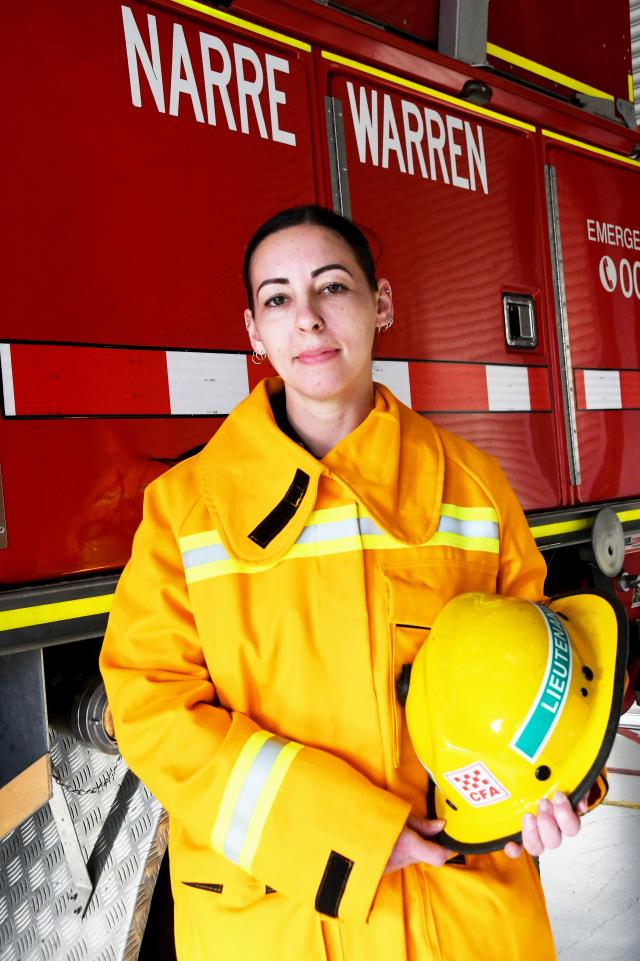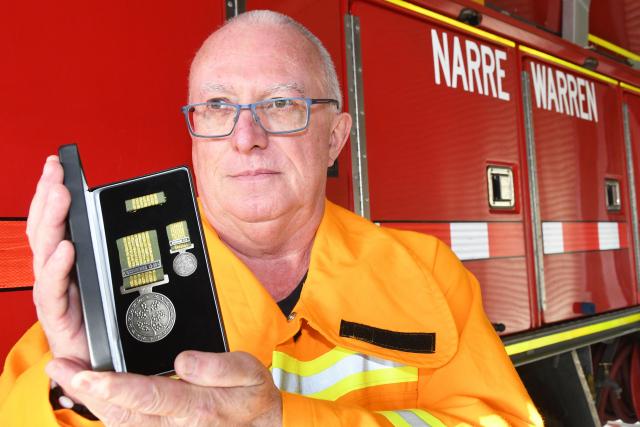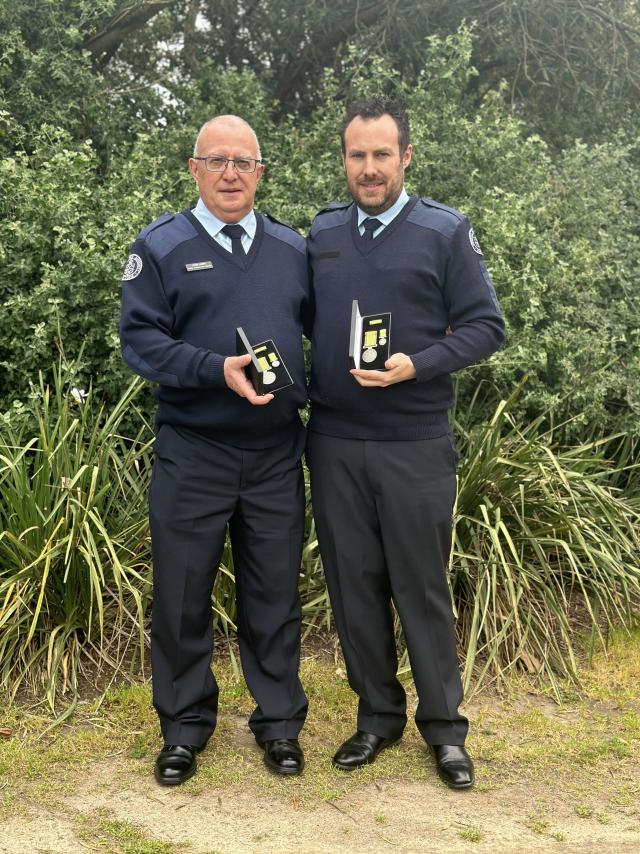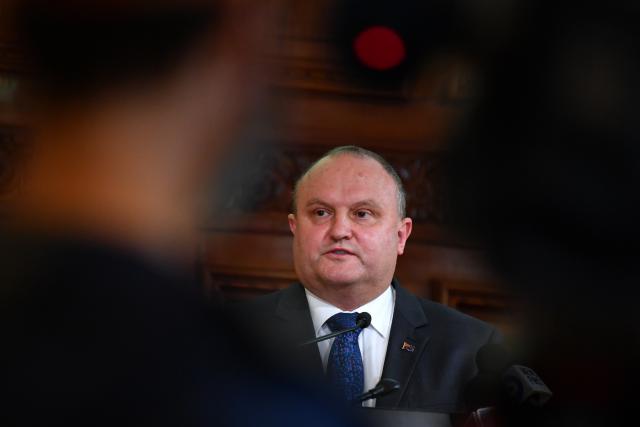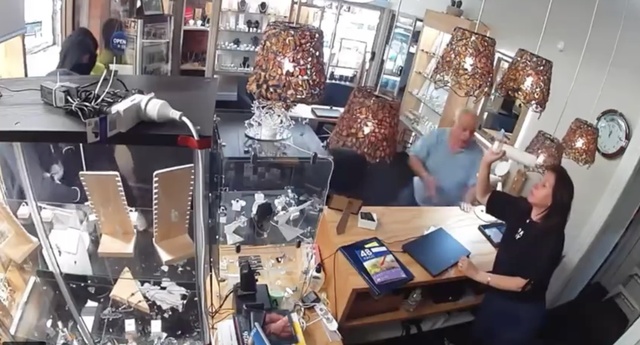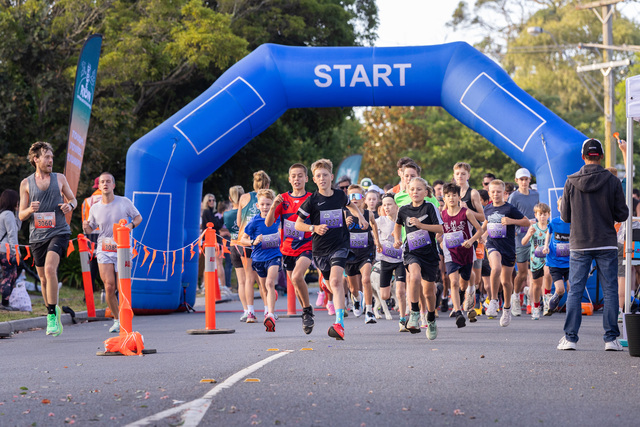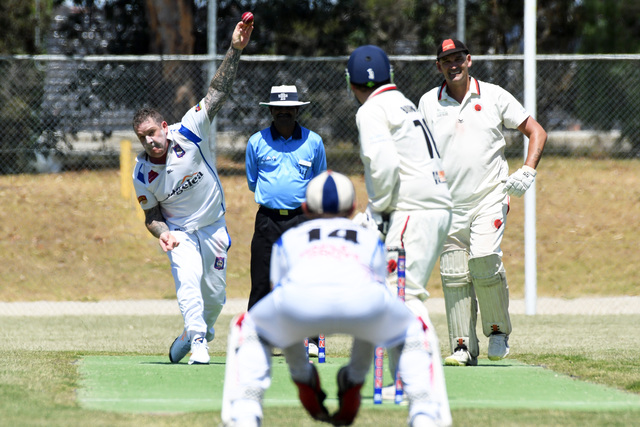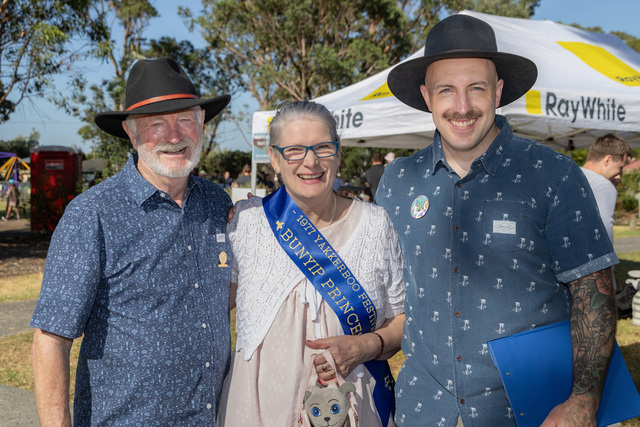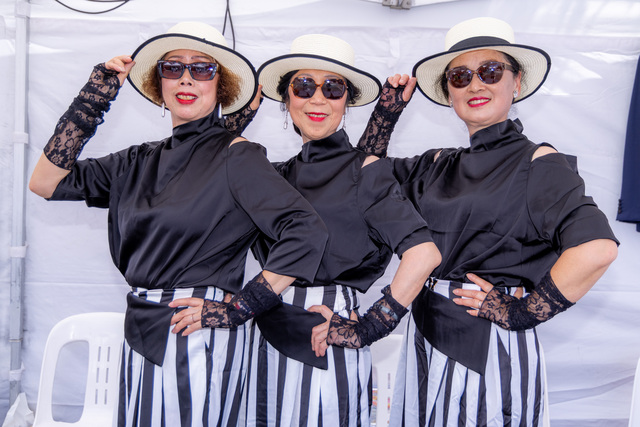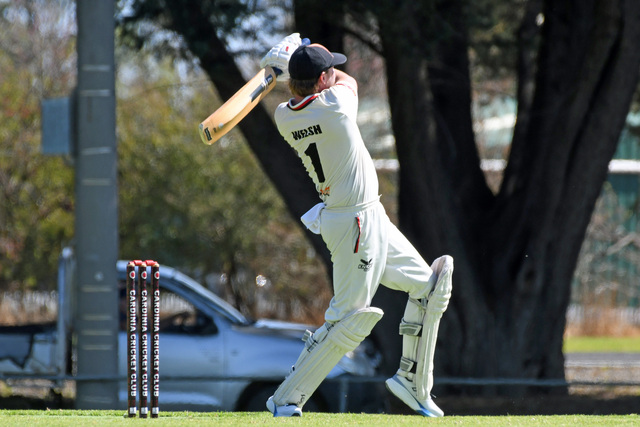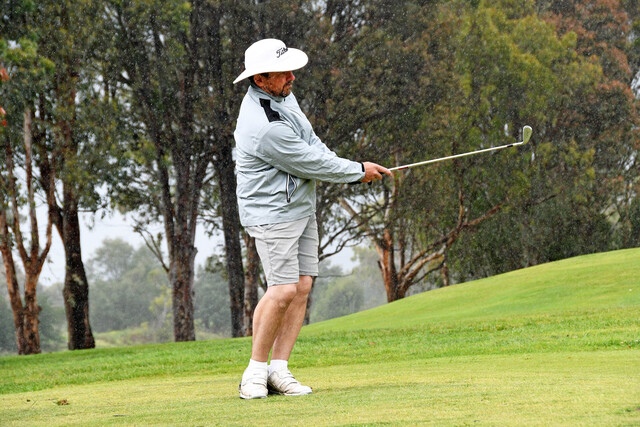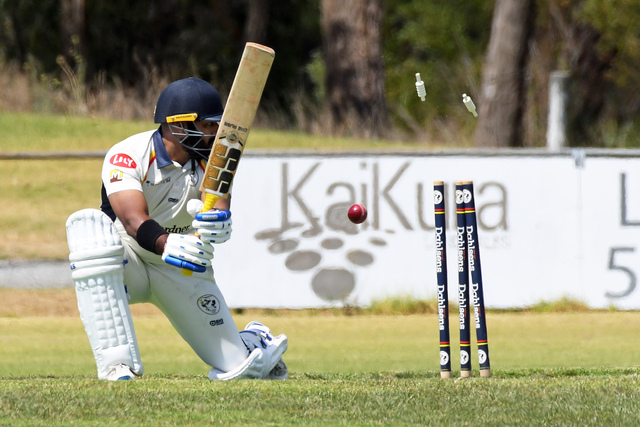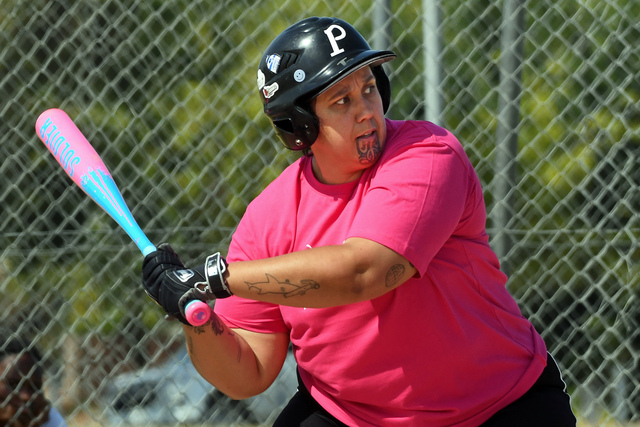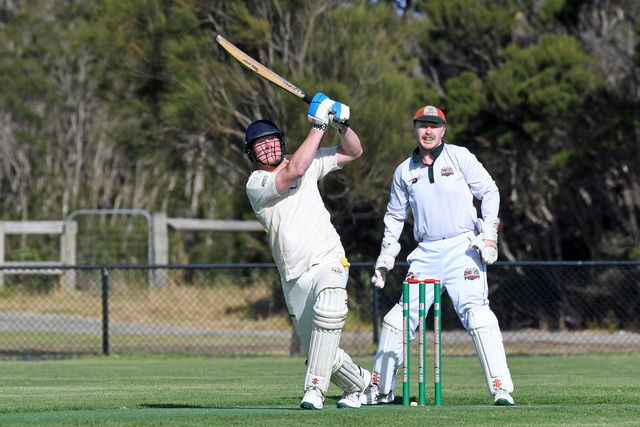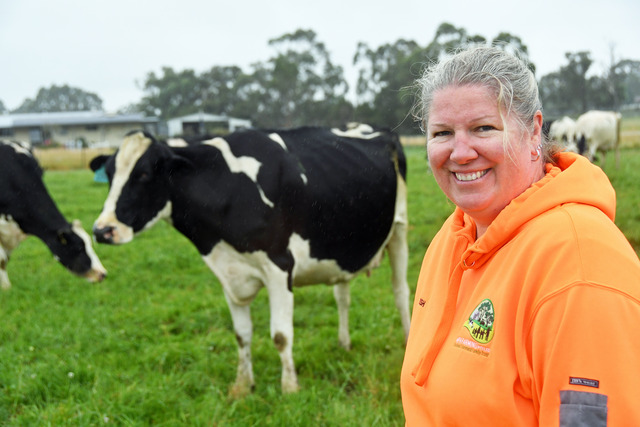The roar of the bush burning all around you and the roar of flames engulfing trees mere metres from where you are standing.
These memories are among those which have stuck in the mind of Narre Warren CFA brigade members who were among the 8200 volunteers fighting fires during the 2019 and 2020 Black Summer bushfires.
Narre Warren 4th lieutenant Anastasia Barker and father and son firefighters Peter and Grant Lynch were among a number of recipients of the National Emergency Medal presented recently as part of Australia’s Honours and Awards system, which recognises significant or sustained service to others in a nationally significant Australian emergency.
By the conclusion of the Black Summer bushfires, more than 2280 CFA volunteers and staff had been deployed interstate, while more than 8200 had contributed to the response at home in Victoria.
The impact of the bushfires covered 1.5 million hectares, tragically killing five people, destroying more than 400 homes and killing more than 6800 livestock and thousands of wild animals.
Mrs Barker said they were first called out to the Bairnsdale area in the first week of January 2020, where they lived out of tents among hundreds of other volunteers and firefighters.
“It was like a home away from home,” she said.
Each deployment lasted for about three to four days, but Peter said each deployment could be “quite strenuous”.
“You can be spent by four days,” he said.
Peter said while he and his son were working in the same area, they never worked on the same strike team, but he was never worried about his wellbeing.
“We saw each other from a 10-kilometre distance,” he said.
“There was nothing that I could do in the face of that fire.
“I’ve got confidence in our training.”
Grant said his team were involved in asset protection.
“That was the biggest campaign fire I’d been on,” he said.
“Seeing the fires, I was a little bit unsure.
“Once we were there, we knew what our role was.”
Peter said he saw several herds of cattle destroyed, leaving hundreds of pelts.
“They were just incinerated,” he said.
“It just shows the intensity of the heat and flames.”
Ms Barker said the dark red of the sky caused by heavy smoke cover was “surreal”.
“The craziest thing I remember was the colour of the sky,” she said.
“That’s just something that you don’t see.
“It’s just surreal, it doesn’t feel real.”
Peter said the sound of the blaze and the wind was something he would never forget.
“It’s like a hurricane,” he said.
“It’s just a roar of trains or trucks coming towards you.
“Then it’s the sudden silence.”
Peter said he remembered a time when they were fighting a fire in front of them but then heard calls of ‘behind’.
“We’re all primed and ready with our hoses,” he said.
“The embers are igniting where we are standing.”
Grant said he appreciated receiving the NEM.
“I think it’s great to be recognised,” he said.
“It was more about being there for the community.”
Peter said he was “humbled and honoured” to receive the medal.
“I would give it back in a heartbeat if we could save more property and the lives lost.”
“They’re the real heroes.”
Mrs Barker’s work involved battling an ongoing peat fire by spraying foam as a wetting agent.
She said she remembered former Narre Warren captain Paul Hardy telling her husband to not worry.
“He said, ‘Mate, nothing’s going to happen to her, she’ll be fine’,” Mrs Barker said.
“It was something that I needed to do.
“I’m not a person that can stand by and not do anything.”
Peter said CFA volunteers were always the first ones on scene in any emergency.
“We’ve always been the ones that step forward,” he said.
“Where others run away, the fire fighters run towards.
“I was very glad to be a part of it.”
Mrs Barker said one of the most significant things was seeing the ‘thank you’ messages she received from people in the townships and signs put up thanking the visiting fire fighters, as well as receiving free cups of coffee from local residents.
“That hits hard, that meant a lot.
“It is overwhelming,” she said.
“It’s very humbling.”
Peter said he had not yet unpacked his ‘go pack’ from his trip.
“I need to be prepared and ready to go,” he said.
“You just never want to be caught off guard.”
Reflecting on what lessons the Black Summer bushfires had taught firefighters or Australia at large, he said the main lesson was that the next major bushfire event was something Australia needs to be ready for.
“We can’t change the past,” he said.
“This year could be another big fire season.
“It’s something that we prepare for.”

